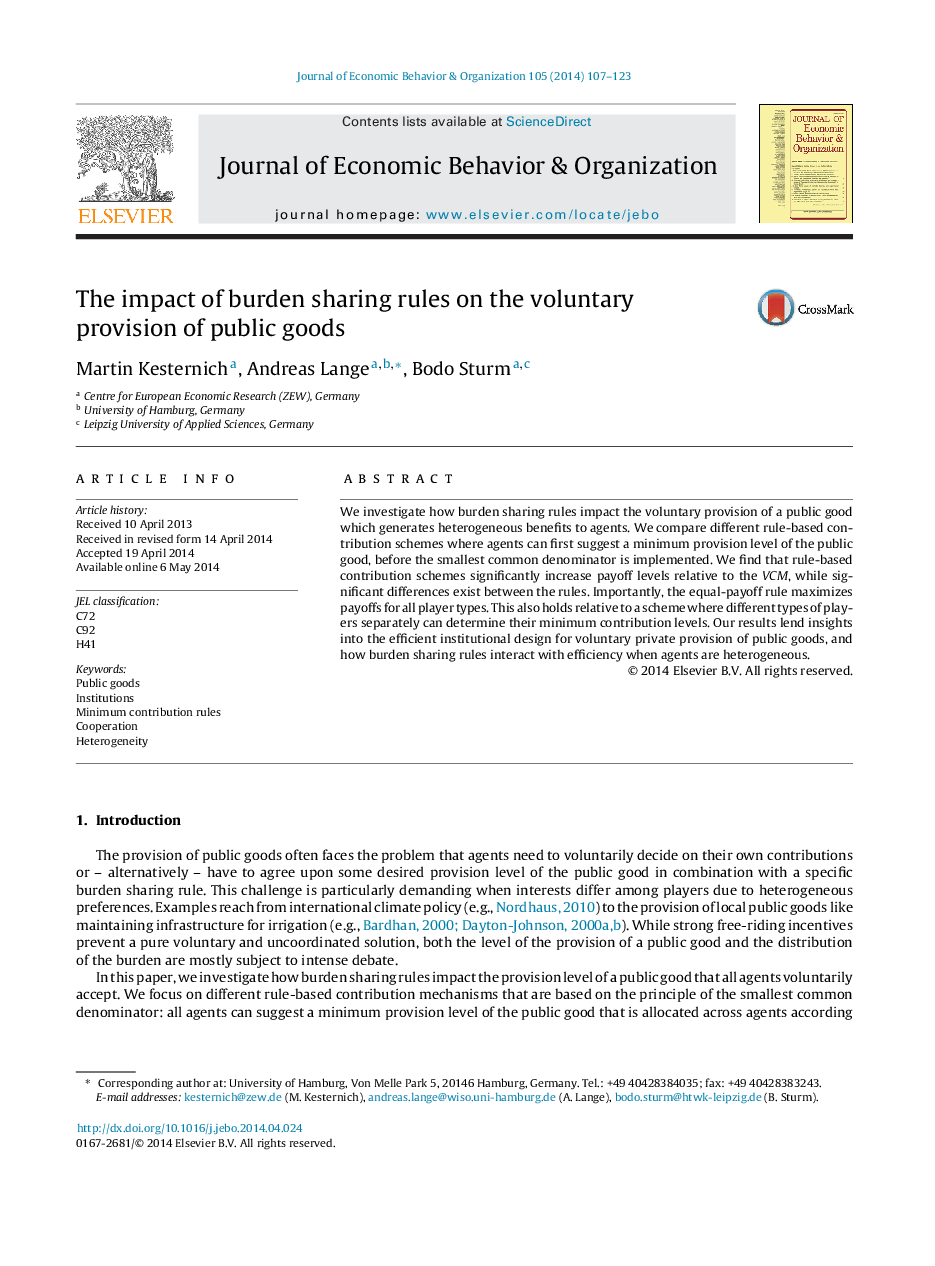| Article ID | Journal | Published Year | Pages | File Type |
|---|---|---|---|---|
| 883502 | Journal of Economic Behavior & Organization | 2014 | 17 Pages |
•Investigate how burden sharing rules impact public good provision when agents are heterogeneous.•Show efficiency-gains from using the principle of the smallest common denominator as institutional feature.•Compare different rule-based contribution schemes.•Equal-payoff rule found to maximize payoffs for all player types and outperforming uniform rules and a scheme where different types of players separately can determine their minimum contribution levels.
We investigate how burden sharing rules impact the voluntary provision of a public good which generates heterogeneous benefits to agents. We compare different rule-based contribution schemes where agents can first suggest a minimum provision level of the public good, before the smallest common denominator is implemented. We find that rule-based contribution schemes significantly increase payoff levels relative to the VCM, while significant differences exist between the rules. Importantly, the equal-payoff rule maximizes payoffs for all player types. This also holds relative to a scheme where different types of players separately can determine their minimum contribution levels. Our results lend insights into the efficient institutional design for voluntary private provision of public goods, and how burden sharing rules interact with efficiency when agents are heterogeneous.
